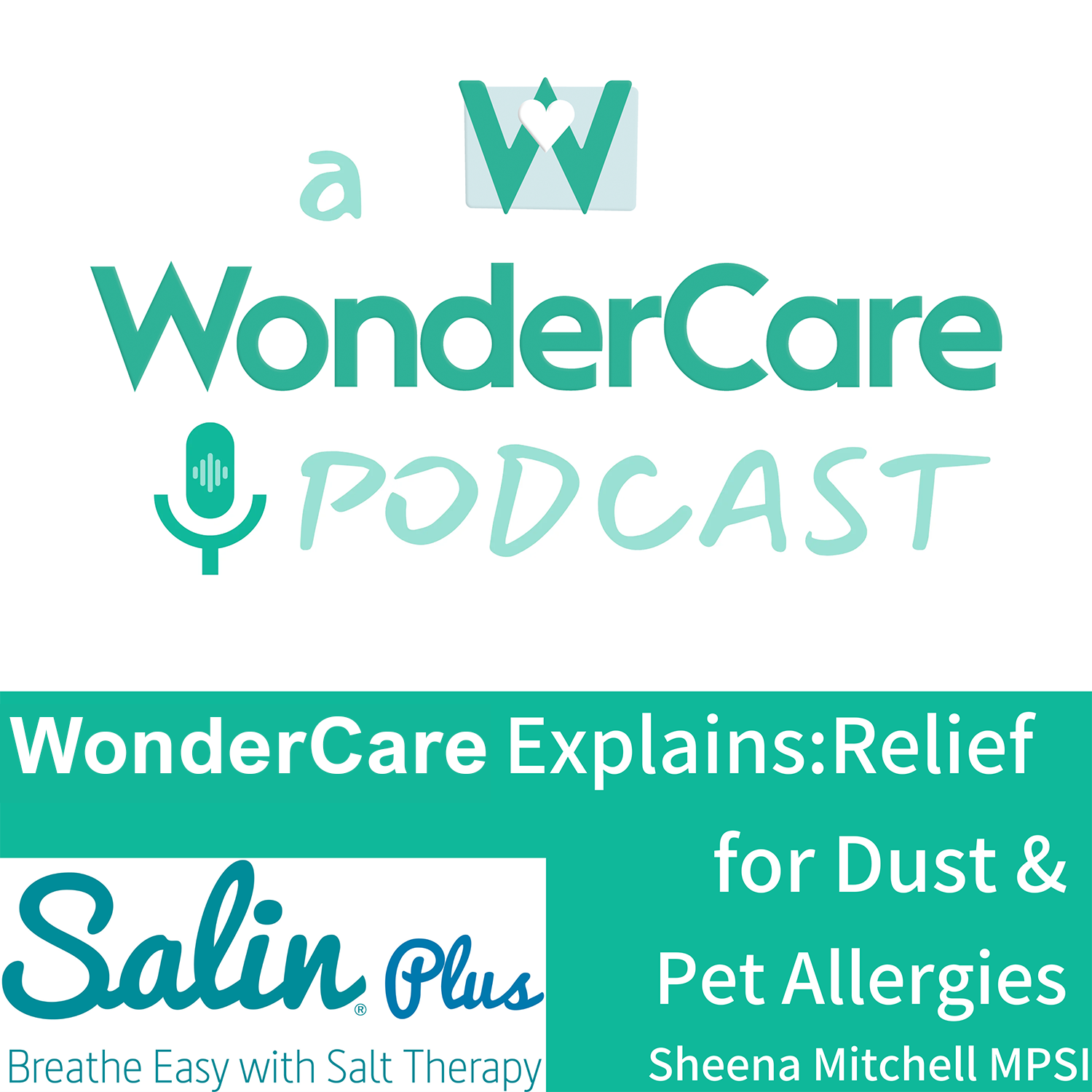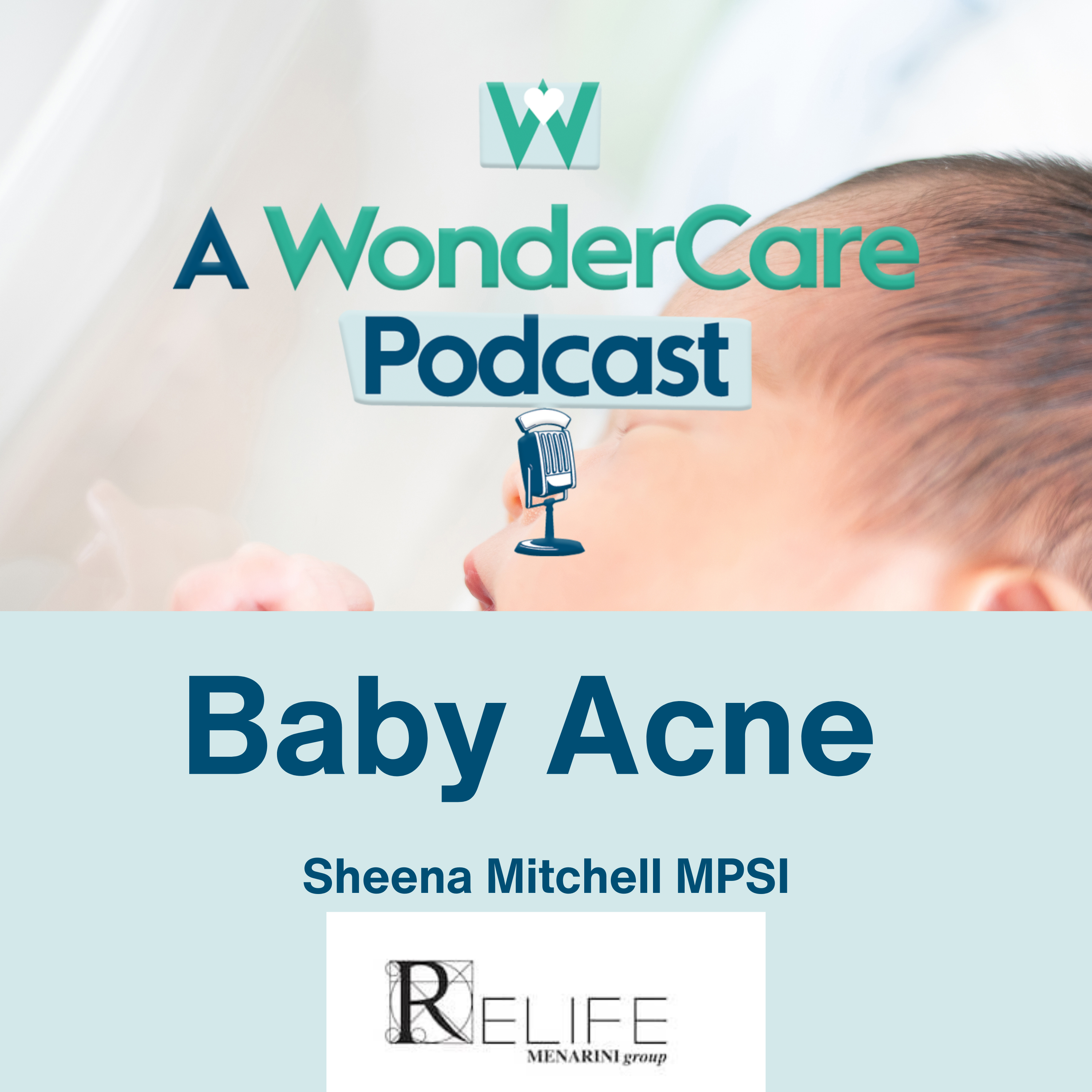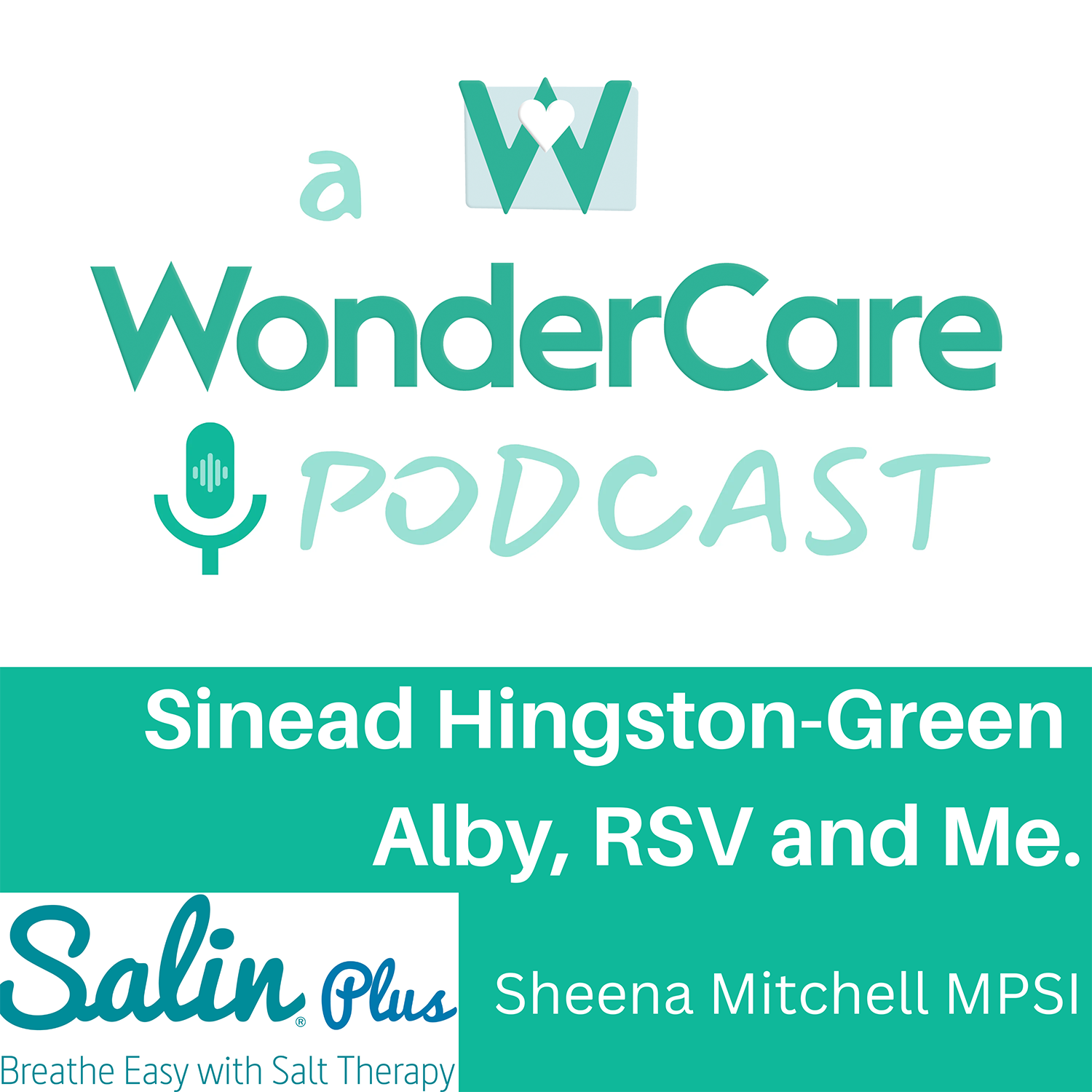Episode Transcript
[00:00:03] Speaker A: Hello, and welcome to a Wonder Care podcast. I'm Sheena Mitchell, pharmacist and mum of three. I combine healthcare and practical advice to support you on your parenting journey. This week, I wanted to talk to you all about antibiotic use and explain what antimicrobial resistance is, why it's such a threat to global health. I thought this was a good time to do this topic because we are in the throes of respiratory health season, so there is a lot of coughs and colds and viruses and a lot of illness in general circulating. So in this episode, I'm just going to quickly explain what antibiotics are and what antimicrobial resistance is and why it's such a big challenge. I'm going to explain things that you, as an individual can do to help, and also how we can support our healthcare providers to ensure that they're sticking with the World Health Organization guidelines. I'm going to give you some results from a European health initiative from the ECDC, which set us targets and kind of let us know how we're doing in Ireland in terms of our antimicrobial stewardship. Antimicrobial stewardship is basically safeguarding our antibiotics so that they're still effective in the future. And it's not just the future. We already have some real threats to our health already because of antimicrobial resistance. But the thought of our children having no antibiotics at all that will work for them when they come across some sort of infection in their later life is, quite frankly, frightening. And it does bring us back to a time before antibiotics existed. People just died from simple, simple things. Part of me hates to say this, but unfortunately, this is a little bit like global warming. We need collective action. Individual action is not enough. So let's get stuck in.
What exactly are antibiotics? Well, we all know they're medicines, and basically they are medicines which are active against bacteria. So they will either kill or stop the growth of bacteria. They're widely used to treat and to prevent bacterial infections. They do not work on viruses. Unfortunately, antimicrobial resistance has been recognized as one of the greatest potential threats to human and animal health over the last decade. The HSE say that over the last 20 to 30 years, we've seen many antimicrobials become less effective, or even not effective at all for treatments of some bacterial infections. Antimicrobial resistance is when bacteria change over time so that they no longer respond to medicines. And I think that there's a very important nuance there. It's not our bodies that are becoming immune to antibiotics. It's the bacteria themselves that are changing and becoming resistant to the antibiotics that we have. So you can have one person individually doing a great job avoiding the use of antibiotics, but if everyone else around them is overusing antibiotics and enabling the bacteria to change in this way, then whether you've ever taken an antibiotic or not isn't actually relevant. Your infection could become untreatable because the bacteria that will spread to you will have become resistant. And that's what I mean when I say this is not an individual responsibility. We have a responsibility as a collective. Antimicrobial resistance pushes us to use different antimicrobials. Some of these might be more toxic, they might be more difficult to use, and they can be a lot more expensive. It means that people are going to be sicker for longer and that there are cases where antibiotics just won't work. There is a real risk of increased disease, spread, severe illness and death. So it's very clear why this is one of the biggest threats to global health. According to the World Health Organization, the world needs to change the way it prescribes antibiotics urgently. Changes must include actions to reduce the spread of infections. And okay, so I know after COVID, we're all sick about hearing about hand washing, but just remember that's not just in the context of viral illness. It's also really, really important for bacterial infections, as is safer sex and good food hygiene. Conditions that are becoming harder, if not impossible to treat include pneumonia, tuberculosis, blood poisoning, gonorrhea and foodborne disease. We are lucky to live in an era of really intelligent science. And while we might be struggling to come up with new effective antibiotics, there is a flip side. We have become really great at making vaccines. The use and uptake of vaccines is really important because that can help to prevent the need for treatment of bacterial disease. The main message here is a bit grim, but without urgent action, we are heading to a return of times where common infections and something as simple as a cut on your leg could become fatal. I'm grateful that the World Health Organization are shouting loud about this at the moment and increasing awareness, because there is actually a lot we can do.
Antimicrobial stewardship is not just something that healthcare professionals need to be concerned about. It's something that individuals can act on as well. And the more of us individuals that adopt an antimicrobial stewardship attitude, the safer future generations will be. Top things you can do are make sure that you only use antibiotics when they're prescribed. You know, it's happened before in the pharmacy. Lots of people that say, oh, well, my friend had some of these antibiotics and you're like, well, that antibiotic isn't actually for that infection and your infection is viral and not bacterial. I know we all want to get better instantly, but in a lot of cases, an antibiotic is not going to be a quick fix. And often it'll do nothing other than upset your stomach if you haven't actually seen the doctor and gotten the appropriate treatment. Speaking of which, seeing the doctor so we know that's difficult in Ireland. We know that there's long waiting times and we know that GP numbers are declining. It can become harder and harder to get an appointment when you do eventually get in to see the GP, never actually expect or demand a prescription for an antibiotic. I know that our system in Ireland is a little bit weird and because it's private, there's definitely, definitely a bit of an attitude that if you don't walk out with a prescription for something, you've been ripped off and that's simply not the case. Your doctor isn't ripping you off, they're trying to safeguard your health and avoid you from experiencing any unnecessary side effects. GPS are trained to identify infection and they're trained to be able to tell the difference between viral and bacterial. So we need to put our faith in our GPS and our doctors, and we need to trust them when they tell us that sometimes the best antibiotic is no antibiotic. That relationship works both ways. There are very strict guidelines in Ireland which are available to all of the doctors and they show which antibiotics they should be prescribing for particular conditions and which ones they shouldn't. And I will explain that more in a minute because it's part of a European health initiative. But I'm going to save these antibiotic prescribing guidelines in my bio on my instagram, which is at wondercare underscore IRL on that very simple chart, which really isn't just for healthcare professionals. Anyone can look at it and say, I've got a urinary tract infection, or the doctor says, I have a respiratory tract infection. And you can see which antibiotic is recommended that your GP prescribes. So there may be reasons that they don't stick exactly to the list and that can be to do with other medications that you're on, allergies previous reactions or other issues. But it is always worth asking your GP, why are you not prescribing me the antibiotic that's on the green list? Our relationships with our GPS should be good and interactive and any good GP is actually just going to be delighted that you're interested in antimicrobial stewardship at all. So I'll pop that antibiotic prescribing list in a post that you can save on insta and I'll also put the link in my bio. Otherwise, for an individual, you can just keep hand washing, keep up to date with vaccinations and be careful when handling food. Obviously goes without saying, avoid sick people. So if you're in a situation where you think it's a very crowded space and there's someone coughing right beside you, move like, try and keep yourself safe. Don't visit the houses of people who have active infections. They probably don't want you there anyway, to be honest. And then what can our healthcare professionals do?
[00:08:53] Speaker B: I am delighted to partner with one of my all time favorite products, Salon Plus. This is the world's 1st 100% natural.
[00:09:01] Speaker A: Dry salt therapy device.
[00:09:02] Speaker B: It's clinically proven to relieve a wide variety of allergens and respiratory conditions. This salt therapy method has been trusted for generations and has become hugely popular worldwide. As more and more people recognise the superb results achieved from a natural and non invasive method. This device will help you breathe easier and sleep better.
[00:09:25] Speaker A: I'm not going to harp on as if they're not aware of it. And I'm some radical coming with amazing breaking news from the World Health Organization. Our healthcare professionals have mouse mats which tell them what to do. So all they need to do is continue to stick to their guidelines and to converse with their patients and explain their choice of antibiotic. It's also important that patients understand the use and dangers of misuse of antibiotics. And it's good to know why you're taking it for five days, why you're taking it for seven, why you're taking it for ten. It's not a good idea to take less days than you've been prescribed. There's a risk that your infection may recur and your doctor is the only one who is placed to determine the length of treatment that you need. Doctors obviously also need to make sure that they're doing really good infection prevention hygiene. Patients are in and out and in and out all day. And all of them, unfortunately, are there with a problem which could be an infection. They also need to make sure that they report resistant infections to surveillance teams so that the people like the World Health Organization and the HSE can continue to make sure that we're safeguarding our future back to how we're actually doing as a country. As I mentioned, there is a European health initiative from the ECDC. And they set us targets. And one of the targets was to decrease by 27% the total consumption of antibiotics in humans. In 2019, our figure for that was 22.8. And this number is actually the defined daily doses per 1000 inhabitants per day. But look, that doesn't really matter. It's a measure. It's a number that we're measuring repeatedly and we can see a rise or fall in it. So in 2019, the baseline measurement it was 22.8, in 2022 it was 23.1. So instead of reducing our total consumption of antibiotics in humans by 27%, we've actually increased it 1.5%. So that is really bad and I don't know why that's happening. I don't know if it's coming from that whole issue of people demanding an antibiotic. I don't know if it's a lack of understanding. And very similarly to global warming, does it feel, well, this doesn't affect just me, so I'm not going to take responsibility because it can be overwhelming when you're told as a group that you're breaking the world, basically, and this is no different. And it can be hard to feel like your actions can make a difference, but they really, really can. Like here in Ireland, we should definitely be going a different direction for our antibiotic use. We're actually ranked the 7th highest in Europe for overall consumption. There is some good news. We were set a target of at least 65% of our total consumption of antibiotics had to belong to what's known as the access group of antibiotics. So our target was 65% and in 2022 we hit 74%. So that is really good. This means that we are using antibiotics which are classified by the World Health Organization as effective against a wide range of pathogens, which are basically things that cause you to be sick while are showing lower resistance than other antibiotics. So these are ones that are less affected by resistance. There are other groups, of course, and some of them are called watch antibiotics. And these are ones which are of critical use. And then we have reserve antibiotics. So these are really last resort antibiotics. So one good takeaway is that we're using the right antibiotics. And I'm going to say that is a big plus. We're just using far too many of them. I just want to give you a couple of very little examples, but really I'm going to leave it at that because it's all in the prescribing guidelines and if I just start rattling off drug names, it's going to be really, really boring. I really hope that you've stayed with me this long. Fair play if you have. I know I'm passionate about medicine, but I know not everyone is. So if you're here, you care. And thank you. So say, for example, you go into the doctor and the doctor says, okay, you definitely have a respiratory infection on their mouse pad. It should be telling them that they should be prescribing. In general, as I said, there's always exceptions, but in general, a five day course of amoxicillin and if you happen to be allergic to penicillin, it would be doxycycline. And traditionally, in the case of a penicillin allergy, erythromycin would have been first line. And now that's in the category to be avoided, first line, so it shouldn't be used. So it's changes like this that just maybe if people are in habits of prescribing certain things, it's time they looked at the guidelines. And it's no harm for you to be aware of them, because if you walk out with the prescription and you go, here, I have no medical complications, my bloods are great. There's literally no reason that I shouldn't be on a green medication. And you walk out of the doctor and you've been prescribed placid, which is really common, or ciproflaxacin, also really common, and you're going, I have a respiratory infection, it should be Amoxicillin. We do actually have an important role in being aware and it's just about focusing, focusing all of our minds and making the GP's job a bit easier, maybe in terms of when and when they shouldn't prescribe antibiotics because it can be so hard to get an appointment with the doctor. It's absolutely a good idea to say, can I get a holding prescription? Because I can't get another appointment here with you for two weeks and I'm happy to go home and do some watchful waiting. I love that term. Basically, that means that you're willing to go home, see how you are and ask the doctor after how many days if you're not getting better or you're still getting worse. Is it a case that potentially you should take an antibiotic and if they give you clear instructions on when you should start an antibiotic but you're just not quite there yet, that you might be able to fight it on your own? In my experience in pharmacy, patients are really brilliant at doing that. They'll come in, they'll leave the prescription with us and they won't fill it, they don't need it. They do get better and they've trusted their doctor that they likely will just get better. But sometimes you've got people who just are like, I'm busy, I don't have time to be sick. Bish bash bosh, I'm going to take all of the drugs. And that's pointless because the illness probably would have gone away just as quick without the antibiotic. Now you've made antibiotic resistance worse for the world and you've probably upset your stomach in the meanwhile and your whole microbiome and all of that. Anyway, I just wanted to highlight that at this time of year because I know it's something that hasn't always been a focus and because there was an awareness campaign last week from the World Health Organization and because the time of year it is. I just thought it was really, really important to maybe try and convince people, just to remember that sometimes the preferred antibiotic is no antibiotic. Anyway, thank you so much for listening and I will catch up with you soon. If you found this episode interesting, it would be great actually, if my dogs would stop scratching on the door of the garage where I'm currently recording this. But anyway, I can't have everything. If you found this helpful and interesting and you think that you would like to be more antibiotic aware, obviously share this episode if you can, because the more of us that act together, the better. And also, if you could give it a little rate and review wherever you get your podcasts. It really, really helps to promote the podcast, which is great, so I can spread more and more awareness. Thank you so much for listening. I'll talk to you sooner.


